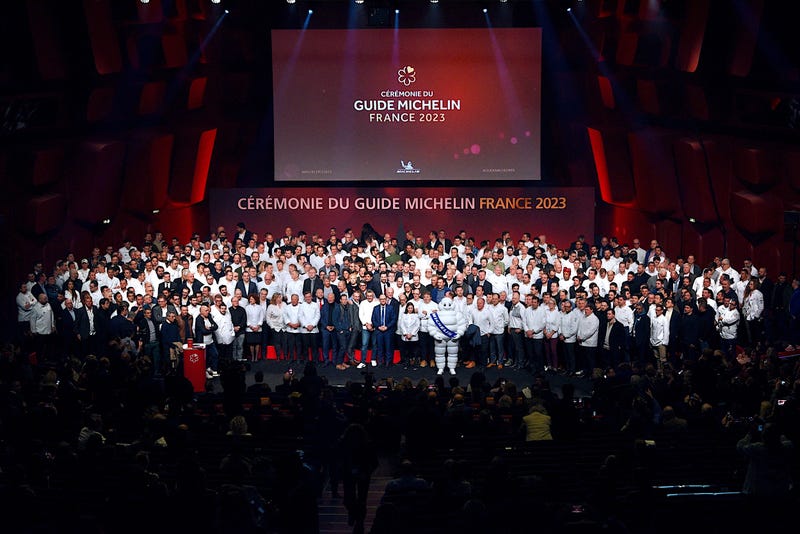
CHICAGO (WBBM NEWSRADIO) — Chicagoans don’t have to call the city home for long to know that, when it comes to food, the Windy City does it right. In April 2023, Food and Wine Magazine ranked Chicago’s food scene as the sixth-best city in the U.S., and as of July 2023, Chicago was home to 21 Michelin-star restaurants.
On the latest episode of Looped In: Chicago, WBBM’s Arielle Raveney dug into the intense process that chefs and restaurateurs have to go through in order to earn those Michelin stars.
Raveney spoke with chef Graham Elliot — who earned two Michelin stars at his eponymous restaurant in 2011 — as well as food journalists Samantha Nelson and Mike Gebert about how restaurants with and without a Michelin star have made an impact on the city’s food scene.
Michelin stars are perhaps the most well-known aspect of the Michelin Guide, which was first published in 1900 by the two French brothers behind the now-iconic tire brand. Over 100 years later, the guide has now rated over 30,000 restaurants across three continents.
For Elliot, gaining a Michelin was a high compliment. He told WBBM that, out of all the food critics and rankings, none are more credible than the Michelin Guide.
“We get a review, and then all of a sudden we get a star,” he said. “And what happens, I think, is the ego kicks in where you're like, 'OK, you know what? We can do food. We’re in a different skill set, so let’s go for this.'”
Michelin stars are awarded by Michelin Guide inspectors, who grade restaurants the following criteria: the quality of products, mastery of flavor and cooking techniques, the personality of the chef represented in the dining experience, harmony of flavors, and consistency among inspectors’ visits.
For consumers, Nelson said a night out at a spot that’s earned even one Michelin star often means paying at least $100 per person all the way up to $500 per person.
“I would compare a night going out to a Michelin star restaurant to going to to a theater,” Nelson said. “It’s a special occasion. They often will give you a little souvenir to take home, whether it’s the menu or some little snack for you to have the next day or even a few hours after your meal.”
Nelson, who’s covered Chicago’s food scene for 15 years, said that’s what the Michelin Guide is aiming for: rewarding places that offer a very high level of service.
Gebert, who edits fooditor.com and has won a James Beard Award for his food journalism, said while a Michelin star might attract a lot of hype, the experience isn’t always worth it for folks who would rather enjoy a nice meal in a more accessible setting.
“There was a kind of Korean/barbecue restaurant for a while called Smalls,” Gebert said. “For a while, I said my standard for food in Chicago is, ‘Would I rather eat in Smalls than the meal I just had?’ You know, their smoked brisket with some Korean [and] Asian flavoring was pretty fantastic. That, to me, was the bar for your fancy schmancy restaurant.”
Although Michelin establishments add allure to any city, Gebert, Nelson and Elliot all shared the sentiment when they spoke with Raveney: Chicago is a great city for food, period.
The full Looped In: Chicago episode can be found here. For more Looped In: Chicago episodes, be sure to subscribe on the Audacy app or wherever you get your podcasts.
Listen to our new podcast Looped In: Chicago
Listen to WBBM Newsradio now on Audacy!


